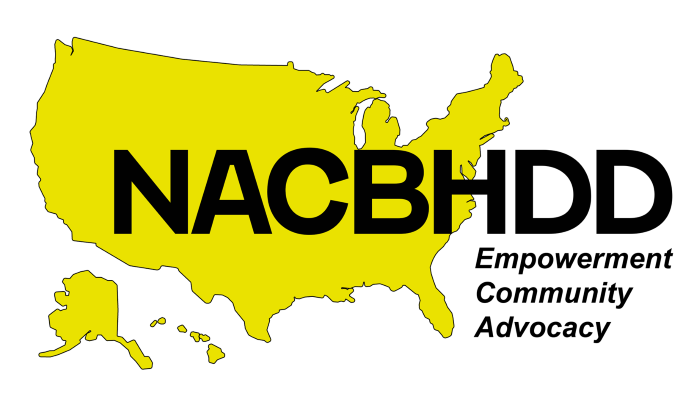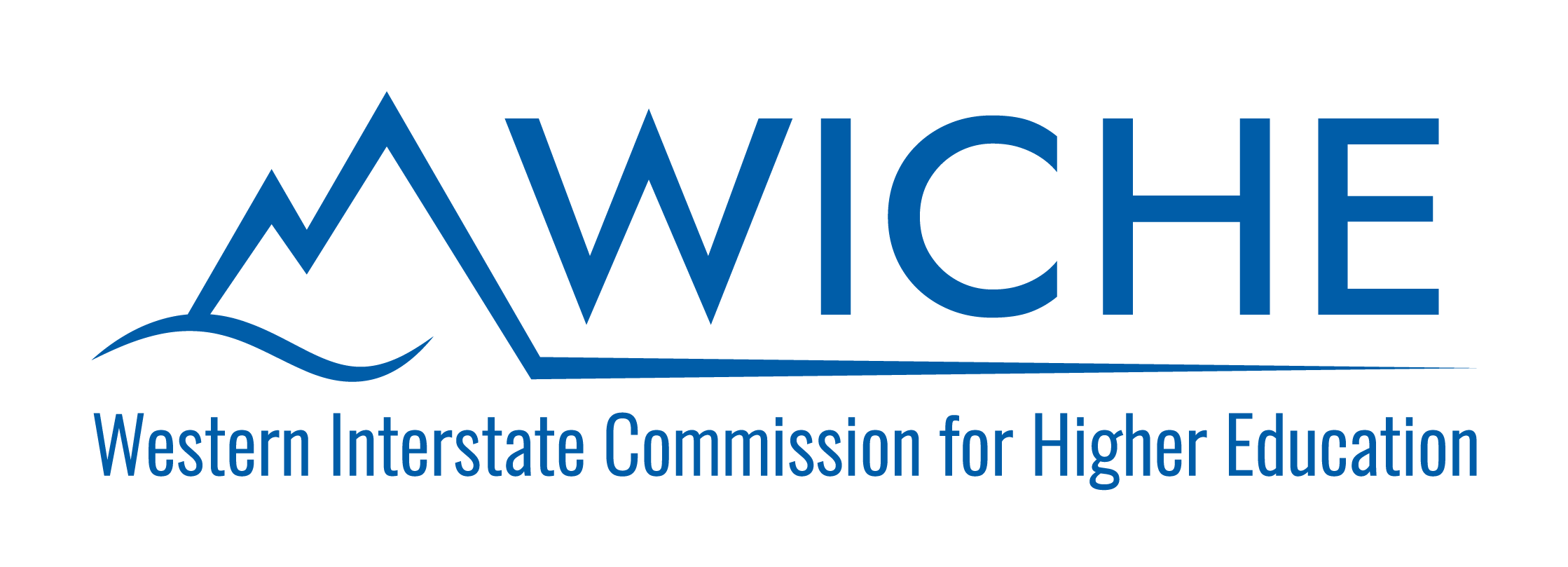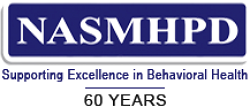Presented by:




2021 Conference Presentations
BEHAVIORAL HEALTH IN THE 21ST CENTURY: FAST FORWARD AFTER THE PANDEMIC
The 62ND Annual Conference (Second Virtual Conference)
1 Session Each Thursday September 30 – November 4,2021 Time: 2:00 pm to 4:30 pm ET
This program has been approved for 15.0 General continuing education contact hours by the National Association of Social Workers, Louisiana Chapter as authorized by the Louisiana State Board of Social Work Examiners, and may be applied toward the continuing education requirements for licensure renewal.
Once again, the National Dialogues on Behavioral Health conference that is usually convened in New Orleans is going to be a virtual conference. The focus is on the design of the future behavioral health system for specific populations based on our current knowledge base and the lessons learned during the Covid pandemic. Topics include: models and programs for persons with serious mental illness, persons with substance use disorders, children and adolescents, and persons who experience system disparities; new models of crisis services; emergent models of physical/behavioral health integration such as CCBHCs and FQHCs; and challenges faced by behavioral health leadership and advocates.
We look forward to your participation.
Suggested audience: Psychiatrists, Social Workers, Nurses, Psychologists, Counselors, Addiction Counselors, Case Managers, Administrators, Health Policy Makers, Behavioral Healthcare Providers, State/County Behavioral Healthcare Administrators, Peer Recovery Workforce, Judiciary Justice System Administrators, Law Enforcement/Justice System Stakeholders, Emergency/Disaster Response Professionals, Educators and School Based Counselors, Human Services and Child Welfare Administrators and Providers, and Academicians |
AGENDA & PRESENTATIONS
- Session 1: Thursday September 30th BUILDING ON PAST SUCCESSES AND LESSONS FROM THE PANDEMIC
This session will provide an overview of behavioral health system trajectories prior to the pandemic and how these will be melded with recent lessons learned to chart the future direction of behavioral health systems. Prior to the pandemic, several innovations were occurring in behavioral health – crisis services, integration with physical health, telehealth, peer and recovery services, and school-based services. During the pandemic, behavioral health providers learned to adapt with urgency and success. As one observer put it, “Systems did in a few months what otherwise would have taken decades.” This session will cover how these different strands will come together to define future models and programs.
Presenters: Kirsten Beronio, JD Director of Policy and Regulatory Affairs, National Association of Behavioral Healthcare; Dan Fisher MD PhD, President, National Coalition for Mental Health Recovery; Josh Morgenstein, MD DFAPA, School of Medicine, Uniformed Services University; Anita Everett, MD DFAPA, Director, Center for Mental Health Services, SAMHSA
Presentations:
Behavioral Health in the 21st Century: Fast Forward After the Pandemic: Vijay Ganju, President, National Dialogues on Behavioral Health;
Influences and Major Trends in Behavioral Health Services: building back better together: Anita Everett, MD, DFAPA, Director, Center for Mental Health Services, SAMHSA;
Funding Opportunities for Expanding Crisis Stabilization Systems and Services: Kirsten Beronio, JD, Director of Policy and Regulatory Affairs, National Association of Behavioral Healthcare;
Ways Emotional CPR (eCPR) can Heal the COVID Trauma: Dan Fisher, MD, PhD, President, National Coalition of Mental Health Recovery
>View Full Session 1 Recording:
- Session 2: Thursday October 7th NEW MODELS OF CRISIS SERVICES (INCORPORATING THE NATIONAL 988 HELPLINE)
Federal legislation related to the implementation of the national 988 helpline for mental health crises represents a cultural shift that has huge ramifications for behavioral health systems across the country. Each state is required to develop a 988 help-line implementation process with a target start date of July 2022. Local systems will need modifications and adjustments will have to be made to current programs and processes. This session will review 988 implementation efforts in behavioral health crisis systems from national, state and local perspectives. Issues related to implementation in rural/frontier areas will be specifically addressed.
Presenters: Laura Evans, Program Manager, National and State Policy, Vibrant; Doug Thomas, Director, Department of Substance Abuse and Mental Health, Utah; Tonja Myles, CPSS Peer Specialist, Set Free Addiction Resource Services, Baton Rouge, LA; Judy Fitzgerald, Commissioner, Department of Behavioral Health and Developmental Disabilities, Georgia
Presentations:
Behavioral Health in the 21st Century: Fast Forward After the Pandemic: Vijay Ganju, President, National Dialogues on Behavioral Health;
New Models of Crisis Services: Laura Evans, Program Manager, National and State Policy, Vibrant;
New Models of Crisis Services: Incorporating the National 988 Hotline: Doug Thomas, Director, Department of Substance Abuse and Mental Health, Utah;
Incorporating the National 9-8-8 Helpline: Judy Fitzgerald, Commissioner, Department of Behavioral Health and Developmental Disabilities, Georgia
>View Full Session 2 Recording:
- Session 3: Thursday October 14th SPECIAL POPULATIONS: Persons with Serious Mental illnesses and Persons with Substance Use Disorders
How were the special needs of persons with SMI and persons with SUD addressed during the pandemic? What was done to ensure that EBPs – so critical for outcomes – were maintained and delivered? What worked, and what did not? And how will these lessons impact the future delivery of needed services to these special populations? On the SUD side, the increase is substance use and the opioid crisis have created a new set of demands. How were these managed during the pandemic, in both urban and rural areas? This session will cover these topics, again with the perspective of developing concrete recommendations and action steps.
Presenters: Kevin Martone, Executive Director, Technical Assistance Collaborative; Rebecca Helfand, Director of Research & Evaluation, WICHE; Arwen Podesta MD, Psychiatry and Addiction Medicine, New Orleans, Louisiana
Behavioral Health in the 21st Century: Fast Forward After the Pandemic: Vijay Ganju, President, National Dialogues on Behavioral Health;
Serious Mental Illness and Substance Use Disorders During the Pandemic: Kevin Martone, Executive Director, Technical Assistance Collaborative;
Evidence Based Practice for Adults with Serious Mental Illness: Rebecca Helfand, Director of Research & Evaluation, WICHE
Substance Use Disorder: Arwen Podesta MD, Psychiatry and Addiction Medicine, New Orleans, Louisiana
>View Full Session 3 Recording:
- Session 4: Thursday October 21st DISPARITIES: Children/Adolescents; Race/Ethnicity, Gender
What is being done to address the growing needs of children and adolescents when they are disconnected from their schools and peers? How do we ensure that the growing child suicide rates and dislocations are addressed? And while disparities in race/ethnicity are ground in the issues of social determinants, there are specific programmatic interventions that can occur with behavioral health systems themselves. SAMHSA has set up training centers that focus on the Latino, Native American and African American populations. New models from implementation science are being applied.
This session will cover these issues and initiatives.
Presenters: Jeff Vanderploeg, President and CEO, Child Health and Development Institute, CT; Heather Gotham PhD, Center for Behavioral Health Services and Implementation Research, Stanford University; Victor Armstrong, Director, Division of Mental Health, Developmental Disabilities and Substance Abuse, North Carolina
Behavioral Health in the 21st Century: Fast Forward After the Pandemic: Vijay Ganju, President, National Dialogues on Behavioral Health;
Enhancing Equity in Access, Quality, and Outcomes of Children’s Behavioral Health Care: Jeff Vanderploeg, PhD, President and CEO, Child Health and Development Institute;
Beyond Cultural Competence: Using Implementation Science to Address Behavioral Health Disparities: Heather Gotham, PhD, Center for Behavioral Health Services and Implementation Research, Stanford University
DISPARITIES: Children/Adolescents, Race/Ethnicity, Gender: Victor Armstrong, MSW, Director, Division of Mental Health, Developmental Disabilities and Substance Abuse, North Carolina
>View Full Session 4 Recording:
- Session 5: Thursday October 28th PHYSICAL/BEHAVIORAL HEALTH INTEGRATION: FQHCs; CCBHCs
Over the last year, Federally Qualified Health Centers (FQHCs) have received substantial new funding for behavioral health services. They are therefore poised to be major centers for integrated care for persons with behavioral health issues. At the same time, there are major advances in developing Certified Community Behavioral Health Clinics (CCBHCs) that provide integrated care, especially for those with more serious, chronic behavioral health conditions. What are plans for their expansion across states, and how will this affect current lives and programs, especially in terms of a recovery orientation and peer support services? This session will cover these questions and issues.
Presenters: Gail Daumit MD, Professor, Johns Hopkins University, MD; Barbara DiPietro, PhD, Senior Director of Policy, National Health Care for the Homeless Council Baltimore, Maryland; Joe Parks, MD, National Council on Wellbeing
Behavioral Health in the 21st Century: Fast Forward After the Pandemic: Vijay Ganju, President, National Dialogues on Behavioral Health;
Physical/Behavioral Health Integration: Scaling Up Evidence-based Cardiovascular Risk Reduction: Gail Daumit, MD, MHS, Professor, Johns Hopkins University;
Certified Community Behavioral Health Clinics: Integration in Action: Joe Parks, MD, National Council on Wellbeing;
Behavioral Health Programming in Federally Qualified Health Centers (FQHCS): Jerome Corley, Substance Use Disorder Program Coordinator, South Carolina Primary Health Care Association
>View Full Session 5 Recording:
- Session 6: Thursday November 4th BEHAVIORAL HEALTH SYSTEM ISSUES: Funding, Advocacy, Education
All the innovative initiatives and programs discussed in the previous sessions are dependent on system design and the availability of resources. This session will cover these system-level issues so cutting-edge programs can be disseminated and go to scale. Funding is critical and demonstrating outcomes through mechanisms such as value-based contracting are likely to become the norm. At the same time, there is still considerable misunderstanding and misperception of mental illness and substance misuse. Both these gaps require a renewed advocacy effort at national, state and local levels. This session will address these issues by reviewing current initiatives in these areas and will develop proposed solutions for implementation at different levels.
Presenters: Ron Manderscheid, (Former) President/CEO, National Association of County Behavioral Health and Developmental Disabilities Directors, Neil Leibowitz, MD, Chief Medical Officer, Beacon Health Options; Miriam Delphin-Rittmon, Assistant Secretary for Mental Health and Substance Abuse, SAMHSA.
Behavioral Health in the 21st Century: Fast Forward After the Pandemic: Vijay Ganju, President, National Dialogues on Behavioral Health;
The Future of Behavioral Health: Neil Leibowitz, MD, JD, Chief Medical Officer, Beacon Health Options;
Changes in Behavioral Healthcare from Pre-COVID to Today: Ron Manderscheid, PhD, (Former) President/CEO, National Association of County Behavioral Health and Development Disabilities Directors;
Behavioral Health System Issues: Funding, Advocacy, Education: Miriam Delphin-Rittmon, PhD, Assistant Secretary for Mental Health and Substance Abuse, SAMHSA